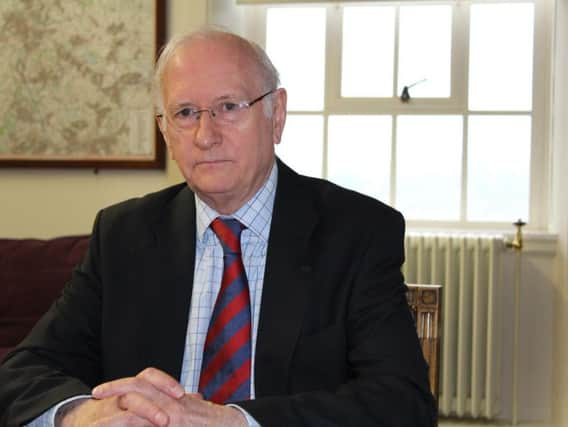New neighbourhood policing could hit force's other performance


The force has been through a chaotic period with a u-turn on a decision by former chief constable David Crompton to scrap the service, as a reaction to the austerity measures which have put police finances under increased strain.
It was a widely unpopular decision, blamed for the service losing contact with the communities it serves and when current chief constable Stephen Watson took over, he took the decision to re-establish neighbourhood policing teams.
Advertisement
Hide AdAdvertisement
Hide AdThe service has fewer staff than the previous arrangement, but is intended to restore the links between police and residents.
However, no additional money has been available for the changes, meaning officers on neighbourhood duties have had to be switched from other parts of the service.
New neighbourhood teams have been introduced across the service over the last few months and they are now all operating, with the South Yorkshire Police and Crime Panel, a body which examines the work of Police and Crime Commissioner Dr Alan Billings, told a review to assess the impact of the changes will take place shortly.
Panel member Steve Chu asked the commissioner: “Are you getting a picture that other areas (of the service) are suffering?”
Advertisement
Hide AdAdvertisement
Hide AdDr Billings said: “The officers have clearly had to come from somewhere. There isn’t a growth in total numbers of officers.”
He accepted that switching officers from other duties would be seen elsewhere in the force but said: “Hopefully, that will be manageable.”
The new neighbourhood teams are focused on problem solving.
“They are trying to get upstream of crime and anti-social behaviour and understand why it happens. We hope it will make some sort of difference, but time will tell.
Panel chairman, Coun Abdul Khayum, said: “I think things are developing in different ways in different areas.
Advertisement
Hide AdAdvertisement
Hide Ad“In Firth Park (Sheffield) we are much more regularly in touch with the local inspector. Certainly, there is more engagement between the neighbourhood policing team and the local community.
“It seems to be going pretty well for us.”
Coun David Hughes, of Doncaster, said: “In my area I have not seen many boots on the ground and I have not seen one PCSO in my village since the review came out.”
His colleague on Doncaster Council, Coun Sue Wilkinson said: “In one small area of my ward, Hexthorpe, we get a list of crimes in that area and the hours police have patrolled. You cannot always be there when police are walking around.
“I don’t know how you track them, but you can, so you can say police have been in the ward for ‘x’ amount of hours over a month.”
Advertisement
Hide AdAdvertisement
Hide AdThe new neighbourhood teams are based in ‘hubs’ which also accommodate other public sector workers they are likely to come into contact with through work in communities, such as mental health workers.
The objective is to get different services working together and interacting smoothly to ensure each can make progress on its own areas of responsibility, resolving problems before they escalate into bigger issues, causing more disturbance and needing more resources